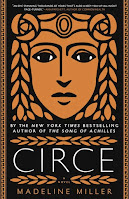8 of us met to discuss this 1947 novel based around the life of Elinor White.
Elinor White has a seemingly solitary, quiet life in a
grace-and-favour cottage in the Kent countryside where she is known locally as
'the White lady' – her community is unaware of her background (a veteran of two
world wars, a trained killer and former intelligence agent).
The story ‘time jumps’ between Elinor’s war years and her
new life, where she is drawn into using her skills to help a local family troubled
by one of the most dangerous crime families in London.
Most of the group ‘enjoyed’ this read but one did not like
it at all stating that she ‘hated’ it! another said that she whistled
through the book and found it so gripping that she almost missed her train
stop!
So, we explored our reading experience based on shared
differences! Why did we have such a divided love/hate relationship with this
book?
What did we like? The historical context was interesting and thought-provoking. The story brings insight into the
SOE (Special Operations Executive), and what women and children did to support
their wartime efforts. It was surprising to learn how extensive the SOE activities
were in Belgium. The visualisation of the characters and their situations was
excellent.
What didn’t we like? The writing was clumsy and somewhat ‘trite’.
“A Boy's Own annual ‘jolly hockey sticks’ story, written by someone who was
trying to write like someone in the 1940s!". The ending was weak: a ‘fairy
tale’ unreal, romanticised outcome that grated with the reality of the rest of
the story.
Would we recommend this book? Well, it was an interesting
book, not particularly well written, but if you are looking for a good read and
are prepared to accept it for what it is, then yes.
Our next book is On Earth We're Briefly Gorgeous by Ocean
Vuong, we will meet on Thursday 16th May, at 8pm to discuss. Sarah will host.











